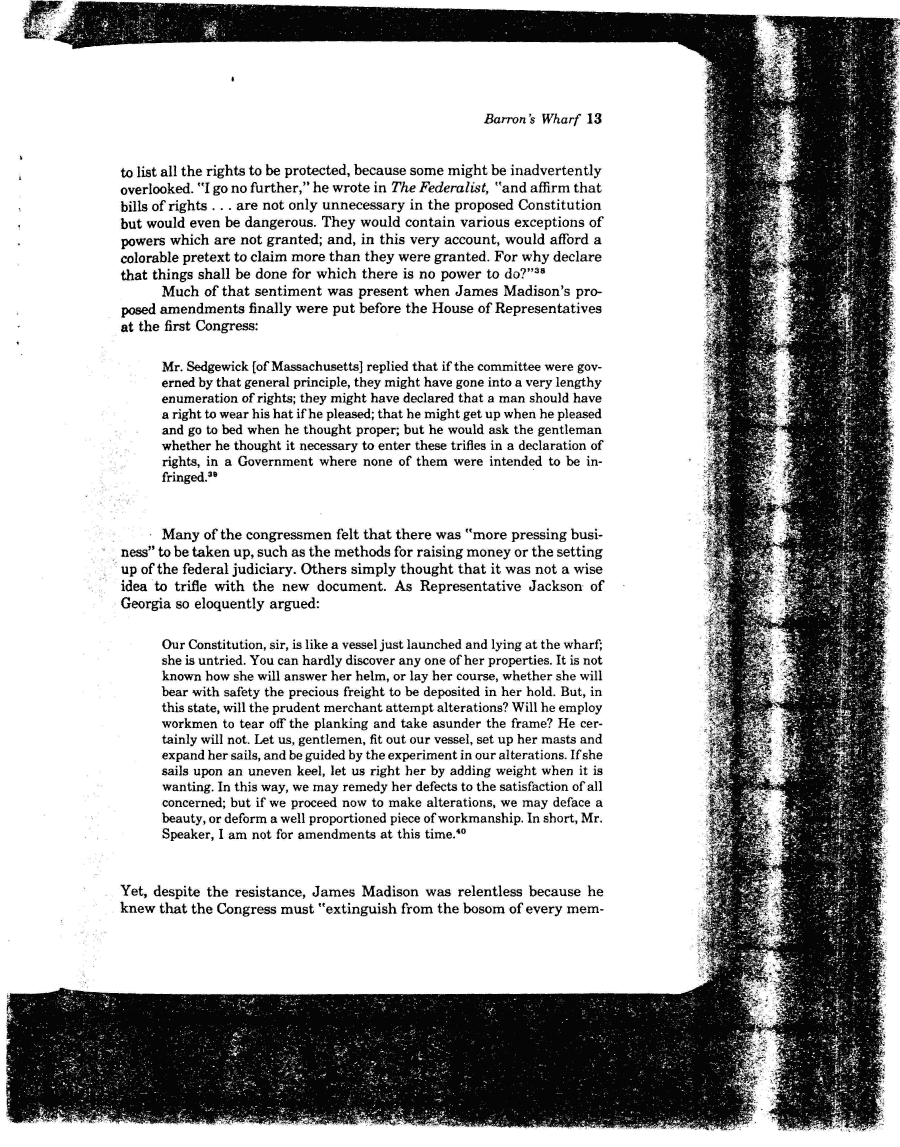|
Barren's Wharf 13
to list all the rights to be protected, because some might be inadvertently
overlooked. "I go no further," he wrote in The Federalist, "and affirm that
bills of rights . . . are not only unnecessary in the proposed Constitution
but would even be dangerous. They would contain various exceptions of
powers which are not granted; and, in this very account, would afford a
colorable pretext to claim more than they were granted. For why declare
that things shall be done for which there is no power to do?"38
Much of that sentiment was present when James Madison's pro-
posed amendments finally were put before the House of Representatives
at the first Congress:
Mr. Sedgewick [of Massachusetts] replied that if the committee were gov-
erned by that general principle, they might have gone into a very lengthy
enumeration of rights; they might have declared that a man should have
a right to wear his hat if he pleased; that he might get up when he pleased
and go to bed when he thought proper; but he would ask the gentleman
whether he thought it necessary to enter these trifles in a declaration of
rights, in a Government where none of them were intended to be in-
fringed.38
Many of the congressmen felt that there was "more pressing busi-
ness" to be taken up, such as the methods for raising money or the setting
up of the federal judiciary. Others simply thought that it was not a wise
idea to trifle with the new document. As Representative Jackson of
Georgia so eloquently argued:
Our Constitution, sir, is like a vessel just launched and lying at the wharf;
she is untried. You can hardly discover any one of her properties. It is not
known how she will answer her helm, or lay her course, whether she will
bear with safety the precious freight to be deposited in her hold. But, in
this state, will the prudent merchant attempt alterations? Will he employ
workmen to tear off the planking and take asunder the frame? He cer-
tainly will not. Let us, gentlemen, fit out our vessel, set up her masts and
expand her sails, and be guided by the experiment in our alterations. If she
sails upon an uneven keel, let us right her by adding weight when it is
wanting. In this way, we may remedy her defects to the satisfaction of all
concerned; but if we proceed now to make alterations, we may deface a
beauty, or deform a well proportioned piece of workmanship. In short, Mr.
Speaker, I am not for amendments at this time.40
Yet, despite the resistance, James Madison was relentless because he
knew that the Congress must "extinguish from the bosom of every mem-
|

